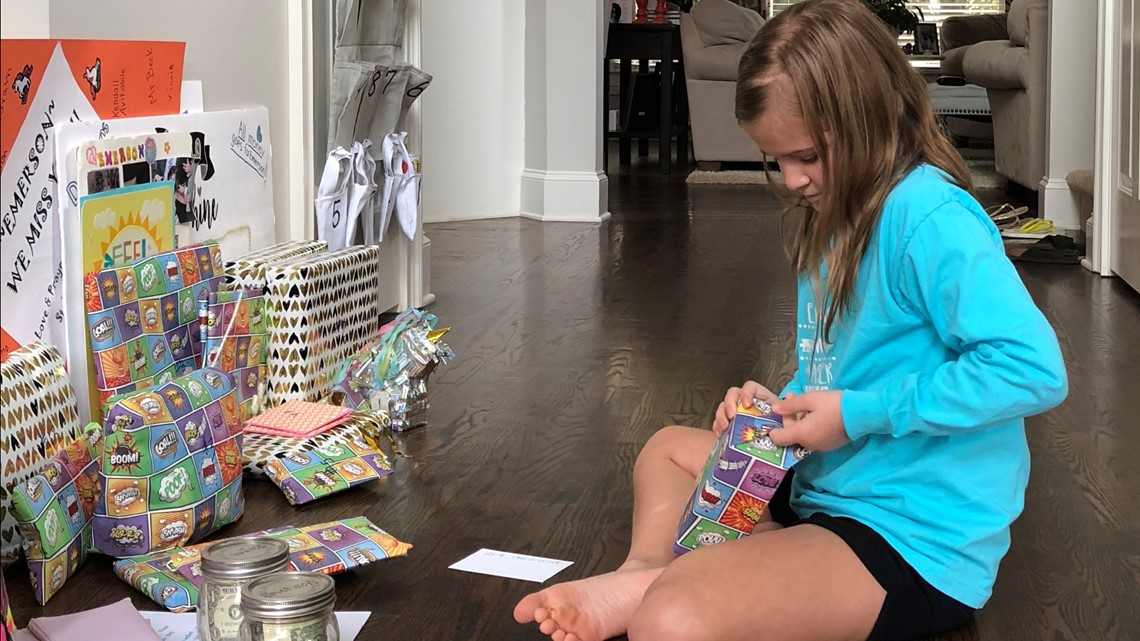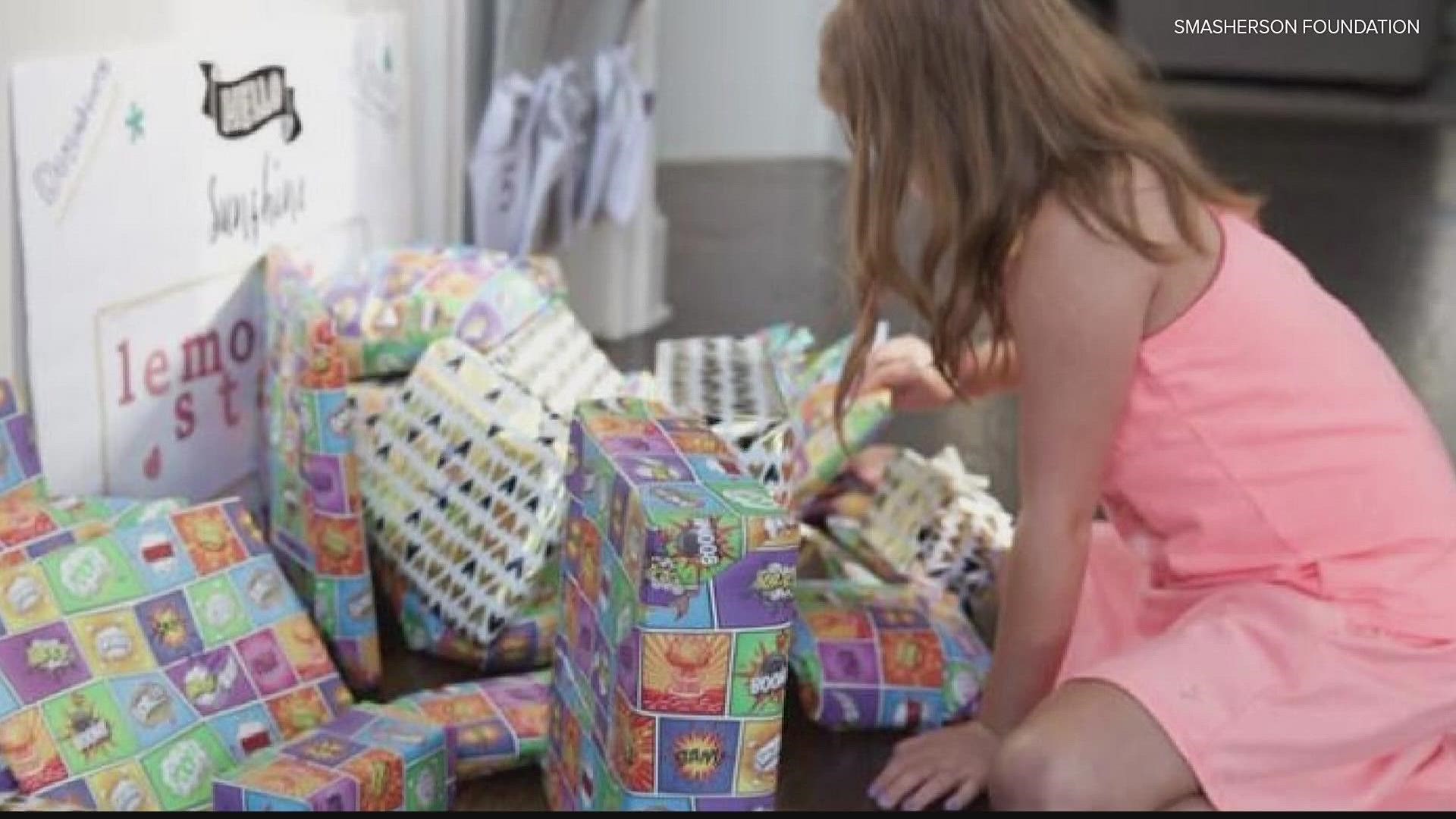ROSWELL, Ga. — It's a journey no family wants to be a part of.
Forty-seven children are diagnosed with cancer every day in the U.S., yet only 4% of federal funding goes towards finding a cure for pediatric cancer. And current treatments can be particularly rough for kids.
Celeste and Jeff Podojil use their daughter's legacy to help other kids through radiation.
"Emerson was our second daughter. She was just a funny, little; I'd guess we say pint sized comedian," Celeste Podojil Emerson's mother said. "Everyone that met her really liked her. She loved purple and pigs; that was her thing."
The color purple and pigs became especially meaningful to the Podojil family in August 2018, when Emerson was diagnosed with a Grade IV Diffuse Midline Glioma with a mutation called H3K27M. Her big sister and friends started calling themselves the 'Piggy Pals,' a special support team through Emerson's treatment.
"They decided every day when she got home from radiation, she would get a gift, and they were awesome gifts," Podojil said. "It was just like a bright spot. We'd take a nap and as soon as she got up, she'd open her gift."
Using money raised from a lemonade stand, the 'Piggy Pals' gifted Emerson with a present and cards to mark each day of radiation, a way to countdown the round of radiation and a daily reminder she was not alone.


"They never left our side ever," Jeff Podojil, Emerson's dad, shared. "The day she was diagnosed, they visited us in the hospital, and even now, I mean, they just carry her with them everywhere they go."
Ten months following her diagnosis, Emerson passed away at 11 years old. Her legacy continues through her family's foundation and the radiation countdown calendars her friends and family continue to create, hoping to deliver comfort to other kids.
"These radiation calendars are so meaningful for these kids," Jeff said. "They are very specific to the needs of the children and the likes that they have."
"It's something that keeps them going. It's something positive to take out of radiation and out of this treatment," Celeste added. "And also, I think it's it's really good for us. It's healing for us."
In addition to providing comfort care through the radiation countdown calendars, the Podojil family is committed to 'smashing' cancer by funding critical research through the Neuro-Oncology Program at Children’s Healthcare of Atlanta. The Smasherson Foundation's name is a nod to how Emerson's family referred to her tumor, a squishy little ball they had to smash.
"High-Grade Gliomas have been subjected to the same therapeutic approach for far too long," Jeff Podojil said. "Although advancements have occurred through various precision medicine initiatives, the pace and effectiveness has been slow. Children's Healthcare of Atlanta along with other partnering pediatric research centers are on the verge of some promising, novel treatments that will hopefully yield better results to a disease with historically poor outcomes."
“So much of what we do in the lab is not considered established enough to apply for NIH funding, whether it be testing new drugs or piloting ‘high-risk’ out of the box ideas that strive to push the needle further for a cure for childhood cancers,” said Tobey MacDonald, MD, Director and Aflac Chair, Pediatric Neuro-Oncology Program and Emerson’s doctor.
Every lab in the US is dependent to some degree, MacDonald said, "on charitable donations of citizens and the funding provided by local Foundations."
"Simply put, we need your donations and Foundation support to bring new and innovative ideas to light, and now more than ever during these challenging times when fundraising events have been markedly curtailed," MacDonald said. "Our kids need you more than ever.”
To learn more, visit the Smasherson Foundation website.

